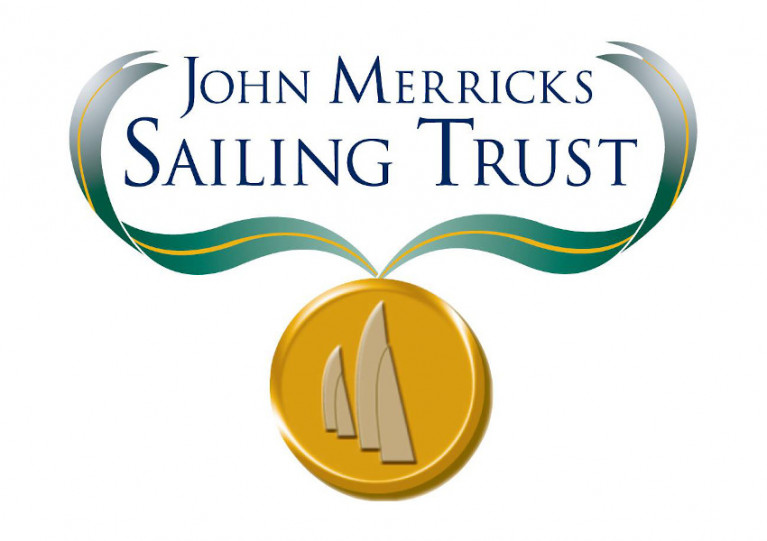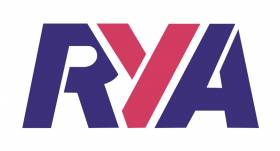Displaying items by tag: John Merricks Sailing Trust
Enthusiastic young sailors from across Northern Ireland are being encouraged to apply to be in with a chance of being awarded their own boat.
Through an ongoing partnership between the John Merricks Sailing Trust (JMST) and RYA OnBoard, 10 boats are awarded to deserving young sailors every year, providing them with the opportunity to progress their skills and continue to participate in the sport.
Connie Wilson from East Antrim Boat Club was given a boat by the JMST last year, and she says it has made a huge difference to her: “I recently took part in my first regatta in my JMST Topper — the Irish Sailing Youth National Championships at Ballyholme Yacht Club. It was a great experience in some very challenging sailing conditions.
“Knowing that I have the use of a boat for the next couple of years, whether it be at the club or at a regatta, has definitely made it easier to forward plan and I take great pride in my boat.”
RYA Northern Ireland’s active clubs coordinator Lisa McCaffrey says: “This is the chance of a lifetime for young sailors. Each year JMST kindly donates boats to promising youngsters who are committed to the sport but may not have the opportunity or financial backing to achieve their goals.
“The JMST Scheme provides young sailors from across the country with their own equipment and after two years it is then given to their supporting organisation — usually their club.
“This is a fantastic way to support our sailors and now is the time to submit applications if sailors are interested. We have had many successful sailors from Northern Ireland and they’ve made great progress in developing their skills with their JMST boats.”
More information on the JMST, set up in the memory of 1996 Olympic silver medallist John Merricks, can be found on the RYA website. The closing date for 2022 applications is Monday 20 June.
East Antrim Topper Sailor Among UK Youths Awarded Boats & Boards for 2022
Topper racer Connie Wilson, who sails out of East Antrim Boat Club in Northern Ireland, is one of 14 young sailors across the UK who have been awarded their own boats and boards donated by the John Merricks Sailing Trust.
Launched in 2013, the partnership through RYA OnBoard supports youngsters who display enthusiasm, drive, talent and commitment to the sport and who may not ordinarily have the opportunity or financial backing to achieve their goals.
Each year, at least one young sailor is selected from each of the ten RYA regions and Home Countries to receive two years of exclusive use of the boat or board.
The equipment is then be donated to the sailor’s original club or training centre to benefit club training programmes and enable other young sailors to benefit in the future and progress into club, regional and national racing activities.
As OnBoard’s official charity partner, JMST have donated over £300,000 worth of funding through the scheme.
The JMST seeks to help young sailors and youth sailing organisations to achieve their goals and was set up in the memory of 1996 Olympic silver medalist, John Merricks.
Recently, JMST announced their intention to dissolve the charity. The remaining funds will be applied to a purpose that will continue to honour the memory of John Merricks, and the trust’s residual funds will be gifted to one of more organisations that can provide a legacy that will continue its objective to help young people achieve their potential through the sport of sailing.
Despite this news, the JMST and OnBoard partnership will continue for another two years.
East Antrim Boat Club recently enjoyed a great turnout for its Christmas regatta, as reported on Afloat.ie.
Applications Open For Young NI Sailors To ‘Win Their Own Kit’ From John Merricks Trust
Young sailors and windsurfers in Northern Ireland could follow in the wake of Donaghadee’s Charlie O’Malley by applying for a junior pathway boat or board in the final year of the RYA’s partnership with the John Merricks Sailing Trust.
Brand new, single-handed boats and boards will be gifted to promising youngsters aged 14 or under “who display enthusiasm, drive, and commitment to the sport and who may not ordinarily have the opportunity or financial backing to achieve their goals”.
The range on offer includes Optimist, Topper, Laser 4.7 and RS Tera dinghies and the Bic Techno 293OD windsurfing board.
Chosen sportspeople will have exclusive use of their own equipment for two years before it’s returned to their supporting venue so that others can benefit.
Since the launch of the partnership between the JMST and RYA OnBoard in 2013, a total of 89 boats and boards have been awarded — and at least one each year has gone to a youth sailor in northern Ireland.
Last year’s recipient, Topper sailor Charlie O’Malley, said: “The JMST boat allowed me to sail to my full potential and it can also gives others a chance to perform at their full potential … The JMST topper changed my sailing life and I hope it can change many other lives too.”
Eligible sailors must be under 15 years of age on 31 December 2020. Sailors must also enter and compete at the RYANI Youth Championships this September.
Sailors will then be shortlisted and invited to complete an application form after the event. For further information visit OnBoard JMST or call 02380 604195.
Young Donaghadee Sailor Has Big Plans As He Begins Second Year In Topper From John Merricks Sailing Trust
Charlie O’Malley from Donaghadee Sailing Club has spent the last six months getting on the water as much as he can in his Topper awarded by the John Merricks Sailing Trust (JMST) and RYA OnBoard partnership.
Since its launch in 2013, the partnership has supported youth sailors who display enthusiasm, drive, talent and commitment to the sport but may not ordinarily have had the opportunity or financial backing to achieve their goals.
In its six years, 76 boats and boards have been donated across the UK — with 10 of these awarded in Northern Ireland, and some remarkable success stories.
Charlie first got into sailing when he joined his friends to take part in Bright Night Sailing — an initiative where young people learn the basic skills of sailing while meeting new friends along the way.
He says that winning the boat meant a lot to him: “I was speechless for the first time ever! I was so excited, I was jumping up and down in joy. Especially when I saw the delivery truck coming down the street towards me.
“When I started racing I borrowed a club Topper. It was pretty basic but it got me started and I was coming last every time.
“When I got my own boat from JMST and RYA OnBoard, I had it out for the first day and I did very well. That made me feel very grateful and made me more confident in the water.”
Charlie hasn’t wasted a moment since he was awarded the boat, he says. “I sail five times a week — sometimes six — with my boat at different clubs. I sail mostly at Donaghadee but I also enjoy trying different waters at different clubs.
“It has helped me lots because now I can go to different places to sail and to sail in national events such as the Youth Nationals and the Irish Topper Nationals.”
He says that he enjoys the social side of sailing and meeting new people but he also enjoys competing.
“I had achieved a lot since I got the boat. I won a series in Donaghadee Sailing Club and won the [Centenary] Regatta in Ballyholme Yacht Club. I also did my first three-day event in my boat at the Nationals.
“Sailing gives me something to do in my spare time that I really enjoy and something that I can carry on throughout my life.”
After meeting one of his sailing heroes at the RYANI Annual Awards earlier this year, Charlie says he is inspired to follow in his footsteps.
“My inspiration would be Ian Walker because he started in a Topper and slowly worked his way up to Olympic level, meeting new people and sailing with friends. I want to do the exact same thing when I grow up.”
Charlie has got big plans before he gives the boat back next year and hopes to continue on his winning streak.
“Before I give back the Topper I would like to have competed in the worlds and get a few more trophies elsewhere,” he says.
RYANI’s high performance manager Matt McGovern said: “I have met Charlie several times since the JMST awards, at several different sailing clubs, and I have been extremely impressed with his attitude and keenness to get out on the water.
“Getting enthusiastic young sailors access to boats and helping give them time on the water is what this award is all about.
“I can think of no better example than that of Charlie. I will not be surprised if we see him rising through the ranks of the RYANI Performance Programme over the coming years.”
Applications for this year’s John Merricks Sailing Trust are now open and further information can be found HERE.
UK Laser Sailors in £50K Irish Sea Crossing Challenge
#LASER - A pair of British sailors are set to embark on an intrepid crossing of the Irish Sea using just two single-handed Laser dingies.
David Summerville and Steve Cockerill had originally planned to make the crossing in September last year, but those plans were scuppered by 50-knot gale force winds and a 12-foot tidal swell, according to Incentive Travel.
But the duo is now planning to try again, with the backing of the Ramada Plaza Southport.
“David and Steve will be covering 115 nautical miles during the challenge," said Ramada Plaza general manager Enda Rylands. "They will set off from my own home town of Dublin and finish in Southport, aiming to raise £50,000 for mental health charity Mind and the John Merricks Sailing Trust."
Summerville, a 53-year-old grandfather of two who runs a boat repair business, said the date of the challenge would again depend on weather and tidal conditions, and that the pair is ready to depart any time from mid-April to mid-September.
It's not the first time that an Irish Sea crossing has been done in a Laser as Tiffany Brien achieved the feat in 2010, sailing single-handedly the 30 miles from Portpatrick in Scotland to Belfast Lough.
But Summerville and Cockerill's ambitious undertaking, at more than three times that distance, would surely get them a place in the record books - provided the weather goes their way!
































































